The concept of the nation is elusive to young evangelicals. Not that we’re politically disengaged. Last year, Anne Snyder argued that amidst increasing dissatisfaction with national politics, millennials were choosing to orient their energies locally, often voting with their feet and returning to invest in the communities where they were raised. At its best, this local politics is undergirded by a tangible personalism that emphasizes the complexity and unique character of the individual over group identity.
This return to the local is often paired with a rejection of national politics, which is viewed as distant, driven by 24-hour news and political celebrity. Joining Tim Keller, young evangelicals increasingly see Christian engagement with national politics as fraught with ethical ambiguity but believe that it is comparatively easy to articulate a Christian ethic of love on the local level and apply it in service to our neighbors. Whatever one may think about immigration at a national level, we understand that the church has an obligation to care for refugees currently in our communities. Whatever the debate may be on welfare and safety nets, we support our local food banks and ministries that care for those in our local communities. This, perhaps, is the most important manifestation of American patriotism: that of being a Philadelphian, a Chicagoan, a Clevelander, or a Wichitan. Though urban politics contain sharp disputes on how to accomplish certain aims, a sense of civic solidarity and shared urban identity remains, manifested in local sports, cuisine, public spaces, and community institutions.
But when we scale up to a nation of over 300 million, with immense cultural and regional diversity, the institutions with which we identify become more abstract. Historically, nations have maintained a sense of solidarity through religious or ethnic homogeneity, but the United States has distinguished itself by rejecting these markers of national identity, forcing us onto a more abstract foundation. Some suggest that America is a credal nation, based on laws or patriotic ideals, but these bonds appear to be fraying, with polarization and ideological movements dominating the national landscape. The concept of the city is concrete, its markers of identity are worn proudly; when it comes to the nation, we’re not sure what we share.
In short, the nation’s existence is awkward. It does not appear to have any divine or metaphysical warrant. In scripture, references to the nation seem to point to its ultimate dissolution into a more universal project. We see the nations judged (Ps. 98), trembling (Ps. 99), and ultimately subsumed in the great multitude of those worshipping the lamb (Rev. 7). The image of the city is more prominent, with constant references to Zion and the New Jerusalem. In the church calendar, we have watched as the pleas of Advent (“O come desire of nations, bind / All peoples in one heart and mind”) transition to the universal revelation of Christ’s kingdom at Epiphany. When reading eschatological passages, it becomes clear that the nation’s authority is proximate; it holds its authority in anticipation of Christ’s kingdom and will not endure through the second advent—at least, not in its current form.
So what, then, are we to do with it? If the nation is a penultimate political entity, ultimately holding its authority on loan, then how are we to situate its responsibilities in the context of the eternal?
This, I think, is the core question confronting young evangelicals today (and perhaps the central question of the entire Christian political tradition). Yet it is one that our politicians, public intellectuals, and commentators have tremendous difficulty helping us think through. We often hear defenses of the nation qua nation, or we see arguments for the nation grounded in history, prudence, or sometimes (more creatively) natural law. We often reason from the nation to the eternal, arguing for the usefulness of religion in maintaining the civil order, but it is much rarer to see this logic run the other way. As a result, our debates become myopic, confined to strictly temporal affairs, with globalists and nationalists (and, every now and then, a localist) spinning their wheels in a reactionary cycle. Those willing to argue from explicitly religious categories often take exception to national politics altogether—think of the influence of Anabaptist thought on contemporary Christian higher education. More moderate idealists allow for participation in national politics but filter such engagement through a simplistic moral vision incapable of handling the complexities that come with wielding the sword. The distinction between the temporal and the eternal quickly slides into a false dichotomy, with pragmatists squaring off against ideologues.
Given the state of contemporary discourse surrounding the nation, it’s no wonder so many young evangelicals are disillusioned with it. What we need is a return to a political theology that rejects this false dichotomy, seeking to recover the practical role of temporal political institutions in light of the eternal. It should be neither pragmatist nor quietist, neither cynical nor ideological. It should affirm the dual nature of Christian existence in the “already” and “not yet,” understanding the temporal to be important because it is training us for eternity. It should seek to orient the nation toward the desire of the nations, allowing the principles of equity and justice to transform our politics while we await the second coming.
There are a handful of scholars advancing this sort of serious political theology, and it seems to be gaining some traction, though it hasn’t yet crossed over into the mainstream of evangelical thought. If we succeed in recovering this theological foundation for national politics, there is hope for rekindling young evangelical interest in the nation. Until then, look for us in our local communities—we’ll be hard at work there.
—
Nick Barden is an alumnus of Patrick Henry College (’14) and the John Jay Institute (’16). He currently works at a higher education reform organization in Washington, DC, and attends Restoration Anglican in Arlington, Virginia.
Photo Credit: St. Bartholomew’s Church on Park Avenue, New York City. By Jeffrey Zeldman, via Flickr.
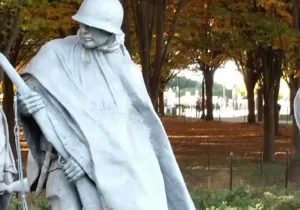
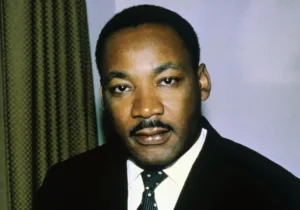
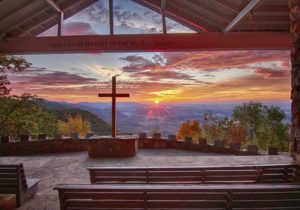
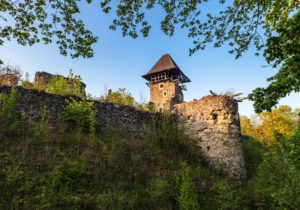
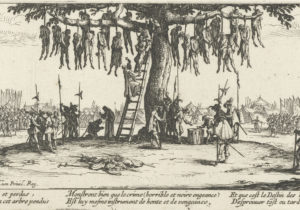

 Sponsor a student for Christianity & National Security 2024
Sponsor a student for Christianity & National Security 2024